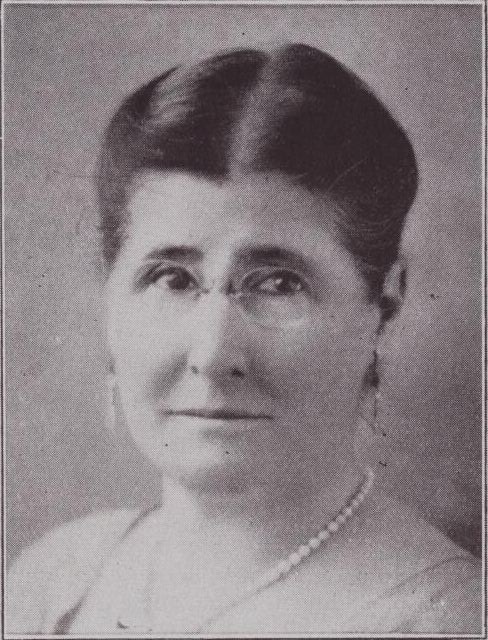Guest Blogger: Dr Maria Quirk, 2016 Q ANZAC 100 Fellow
Reflecting on the subject of the ‘Woman Citizen of Today’ in a speech to the Queensland branch of the National Council of Women in August 1918, community worker and women’s activist Zina Cumbrae-Stewart noted that the female patriot served her country ‘by helping in every movement aims at the welfare of mankind’, and, more specifically, by ‘bearing sons for the empire.’

Zina Cumbrae-Stewart photographed in A Biographical Record of Queensland Women: A Representation of Every Sphere Sowing Activities and Interests, Social, Philanthropic, Historic, Scholastic, Sport and Travel (Brisbane: Webb, Elliot, 1939)
The values of good citizenship and maternal imperialism Zina explains in her speech were amongst the factors that motivated both single and married women to volunteer for war work in Queensland. As a Q ANZAC 100 Fellow for 2016/2017, I am exploring these and other reasons that inspired women to volunteer both at home and abroad during World War One.
Zina Cumbrae-Stewart’s papers and the records of the National Council of Women, both held at the John Oxley Library, are good starting points for my research. Both of these sources illuminate middle-class women’s attitudes towards imperial loyalty and feminism, which are the two motivating factors for women’s war work that I am focusing on throughout my project. Although one is now seen as a progressive cause and the other a conservative one, feminism and imperialism co-existed peacefully in groups that promoted women’s active citizenship like the National Council of Women Queensland. The Queensland branch used both of these ideologies to justify its open support of the war, unlike its sister organisation in New South Wales, which instead advocated for the link between pacifism and feminism.
The Q ANZAC 100 fellowship is a unique opportunity to introduce more female voices into the broader narrative of Queensland and the First World War. I have long been interested in the female experience of history. I researched nineteenth-century women artists during my PhD, and now work as the Curator of History at Adderton, an arts and ideas space housed at the historic Sisters of Mercy Convent in Fortitude Valley, where my job is to explore the history of women’s lives in relation to art, power, devotion and politics. As a Q ANZAC 100 fellow, I want my research to reflect the complex and multi-faceted story of women’s lives during the First World War.
Dr Maria Quirk
Comments
Your email address will not be published.
We welcome relevant, respectful comments.